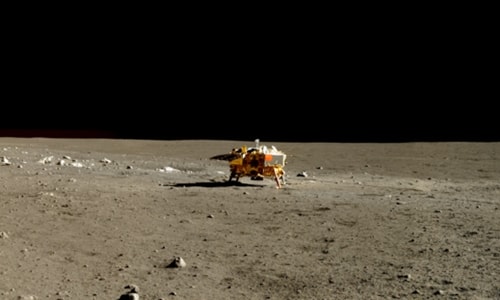China to send plants and insects to the Moon in 2018
Scientists will bring silkworm seeds and eggs to the Moon on the Chang'e 4 space mission.
|
China will study the impact of the lunar environment on Earth's organisms. Photo:Ancient Code. |
China plans to launch the Chang'e-4 space mission to study geology and the effects of the moon's gravity on insects and plants from Earth this year,FuturismJanuary 5 news.
Previously, China sent two spacecraft to orbit the Moon and a rover to land on its surface under the China Lunar Exploration Program (CLEP), or Chang'e program.
The Chang’e 4 mission will begin in June with the launch of a Long March 5 rocket carrying a spacecraft into lunar orbit. Six months after the spacecraft reaches its intended orbital position, a lander and rover will be launched onto the lunar surface.
The lander carried an aluminum alloy container containing live seeds and insects for research, including potatoes, rapeseeds and silkworm eggs, according to Zhang Yuanxun, the container’s chief designer. Silkworms hatching from the eggs will produce CO2, while potatoes and rapeseeds will produce oxygen through photosynthesis.
“They could establish a simple ecosystem on the Moon together,” Yuanxum said. Bringing seeds and insects to the Moon could help determine the potential for humans to live and work there.
Experts are currently unclear whether Earthly life could thrive on the Moon, where gravity is only about 16% that of Earth. The Chang'e 4 mission's destination is the South-Aitken basin, an area that many believe could be an ideal location for a lunar base.
Microgravity has some serious health effects. Astronauts who explore the Moon are equipped with protective gear to prevent the negative effects of gravity there. However, living on a lunar base for an extended period of time could lead to unforeseen problems.

